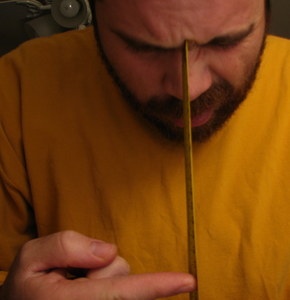“Hey,” said Skunk, “watch what I can do.”
“Okay,” said Rabbit and Deer, and turned to watch.
Skunk pointed at a dandelion, ripe and ready to blow in the wind, and raised his black and white eyebrow. “Eh?”
Skunk turned his rear end towards the dandelion and let fly his best predator-befuddling blast. The dandelion seeds flew up into the air and over the grass.
“That’s quite a trick,” said Rabbit, holding her nose. “I think I see some really nice clover go over there. My stomach is ready for breakfast.” She hopped away.
“Grrt idear, frrnd rrbbit,” snuffled Deer, trying not to breathe. She wobbled after her friend.
“Yeah,” mused Skunk. “That was a good one.”
The seeds wafted across hillock and glen. Wherever they went, animals avoided them. Mice refused to eat them, or in fact anything they touched. Beetles, as soon as they caught a whiff of the scent they carried, scuttled in the opposite direction. In fact, none of them was eaten–save one, by a stink bug.
Teresa: Ew gross, a stink bug.
Yes, they all landed safely, because no animal would go near them. They were the worst-smelling dandelion seeds ever.
“We’re lonely,” one seed said.
“Why doesn’t anyone like us?” moaned another.
But you know what? Because they weren’t eaten, most of them sprouted, and nearly half of them grew into dandelions. Which was very unusual — normally, they’d be lucky if even one made it. They were protected by the skunk’s scent.
And that’s the end of the story.
Maya: Dad, can we have an ending?
Rabbit and Deer munched in a clearing. Their noses twitched every once in a while.
“Mmm, this is delicious clover,” said Deer.
“Oh, yes, it is absolutely delicious,” Rabbit agreed. “A fine breakfast.”
“Yes, I’m so glad we are eating it together,” Deer said.
“I think I’ll go get some salad dressing to go with it,” Rabbit offered, and scampered off.

